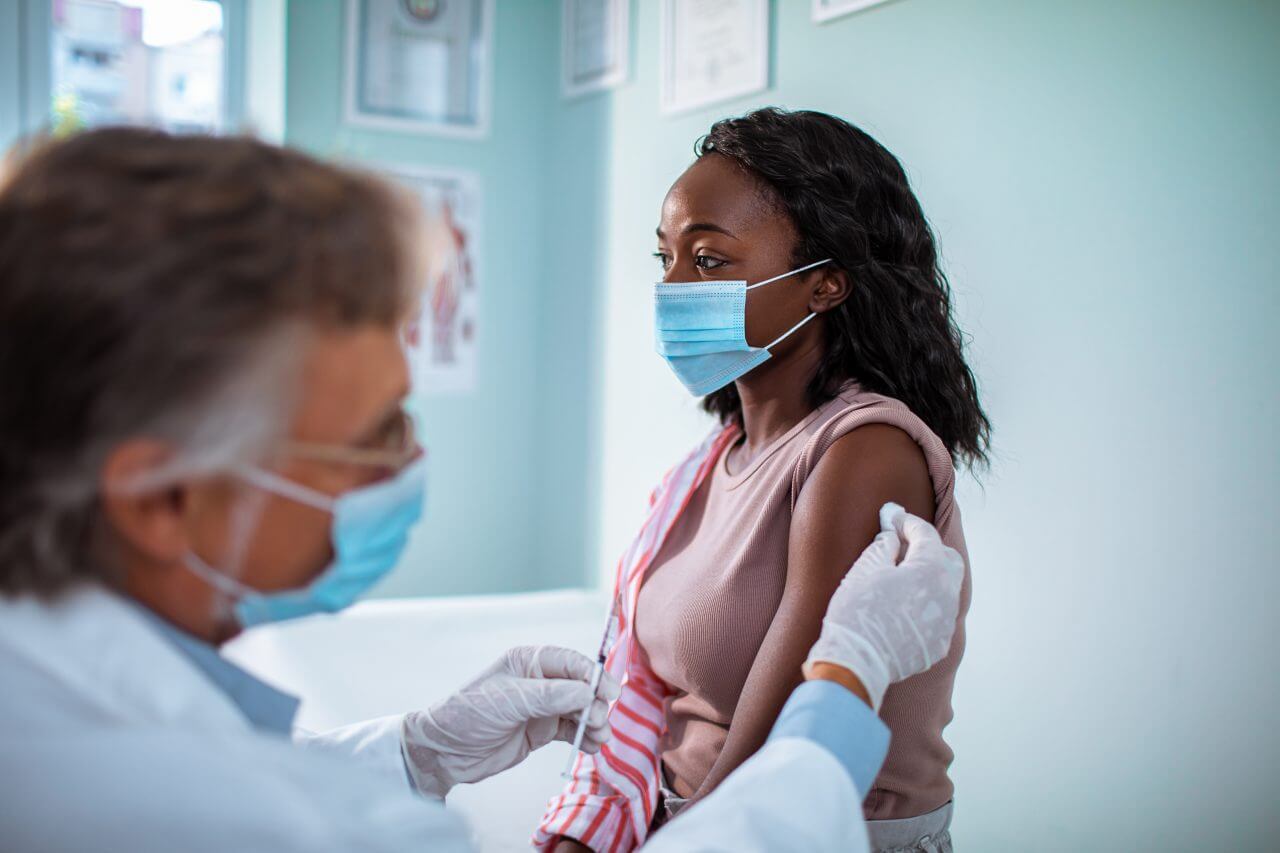If It’s About Your Health, It’s On MyChart
Communicate with your provider, schedule an appointment, request a refill, and more from the convenience of your device.

Updated: November 6, 2020
Centers of Disease Control and Prevention: In the United States, there is not yet an authorized or approved vaccine to prevent coronavirus disease 2019 (COVID-19). Once available, COVID-19 vaccines will help prevent a disease that can be dangerous, or even deadly. While experts do not know yet exactly how well COVID-19 vaccine will work, they know that authorized or approved vaccines will help reduce the risk of disease by working with the body’s natural defenses to safely develop protection (immunity) to disease.
The University of Kentucky, in partnership with Baptist Health Lexington and Norton Healthcare in Louisville, has been selected as a testing site for the Janssen Pharmaceutical Companies of Johnson & Johnson’s Phase 3 clinical research study, called the ENSEMBLE trial, to evaluate Janssen’s investigational COVID-19 (coronavirus) vaccine candidate, JNJ-78436735, also known as Ad26.COV2.S.
The Phase 3 randomized, double-blind, placebo-controlled clinical trial is designed to evaluate the safety and efficacy of a single vaccine dose of the Janssen investigational COVID-19 vaccine candidate versus placebo, in approximately 60,000 people, including significant representation from those that are over 60.
We are proud to partner with other providers to bring the latest
innovations in healthcare and wellness to our communities.
WILLIAM G. SISSON, PRESIDENT, BAPTIST HEALTH LEXINGTON
Janssen’s investigational COVID-19 vaccine leverages Janssen’s AdVac® technology. The same technology was used to develop Janssen’s European Commission-approved Ebola vaccine regimen and is the basis for its HIV, RSV and Zika vaccine candidates. To date, more than 100,000 individuals have been vaccinated with a Janssen AdVac®-based vaccine. The UK, Baptist Health Lexington and Norton Healthcare research teams plan to enroll at least 2,000 local volunteers for the trial, which is open to people over 18 who meet inclusion criteria, including adults with and without health issues associated with an increased risk for progression to severe COVID-19.
Across the world, there are several vaccine makers creating and testing vaccines with one mission: prevent the spread of COVID-19. Here’s what you need to know about coronavirus vaccines.
It’s been reported that there are an estimated 135 vaccines now in development worldwide. And while this may seem extreme, it is actually a remarkable feat when facing the challenges of a growing world population and the unknowns this virus has presented.
Vaccination refers to the medical process of immunizing or protecting oneself against disease. When confronted with a pathogen or disease agent, your body produces antibodies and other chemical substances to fight that disease. These substances remain in your system after the disease has succumbed, only to be reactivated when you come into contact with a similar pathogen in the future.
Vaccinations build on this natural process of immunization by introducing a weak or inactive version of the virus (or genetic traits of the virus that do not cause infection) into your body, typically through shots. Though this version is typically too weak to be harmful, its presence alerts your immune system to produce antibodies, protecting you against future attacks. In a sense, a vaccination tricks the body into creating a defense against a particular disease, without the risk of getting sick in the first place.
A COVID-19 vaccine helps allow the body to create immunity against the virus that causes COVID-19 without actually getting the illness. There are different types of vaccines, but in all cases, vaccines prompt the body to create lymphocytes, which essentially help the body remember how to fight that virus in the future.
It typically takes a few weeks after vaccination for the body to build immunity, so it is possible that someone may become infected with the virus that causes COVID-19 just before or shortly after receiving the vaccination before there has been sufficient time to provide protection.
According to the CDC, all but one of the COVID-19 vaccines currently in Phase 3 clinical trials in the United States require a series of two shots. The first shot begins building protection. A few weeks later, a second shot is needed to get the most protection the vaccine has to offer.
Communicate with your provider, schedule an appointment, request a refill, and more from the convenience of your device.
About 60% of participants in an early study by Oxford-AstraZeneca and CanSino reported mild, short-term side effects that included fever, headaches, muscle aches, and reactions at the injection site. These symptoms are normal and are generally an indication that the body is building immunity.
It’s still unclear, but experts believe that the coronavirus mutates slower than other viruses, including influenza. While this remains cutting-edge with daily advancements, we will have to wait to understand more. However, if the immunity is partial, as is the standard flu shot, even individuals who become vaccinated from COVID-19 could still become ill, but we anticipate that the symptoms will be reduced.
Getting vaccinated is just one of many steps you can take to protect yourself and others from COVID-19. Proactive protection from COVID-19 is critically important because of the severity of the disease in certain populations.
Ending this pandemic will require us to use all of the tools at our disposal. Vaccines work to help proactively create immunity so your body will be ready to fight the virus if you are exposed. Other measures, like frequent hand washing and sanitizing, masking and social distancing, can help limit your chance of being exposed to or spreading the virus.
Find a provider near you and stay up-to-date on all your health needs. We’re taking extra precautions to keep you safe.
Find a ProviderNext Steps and Useful Resources